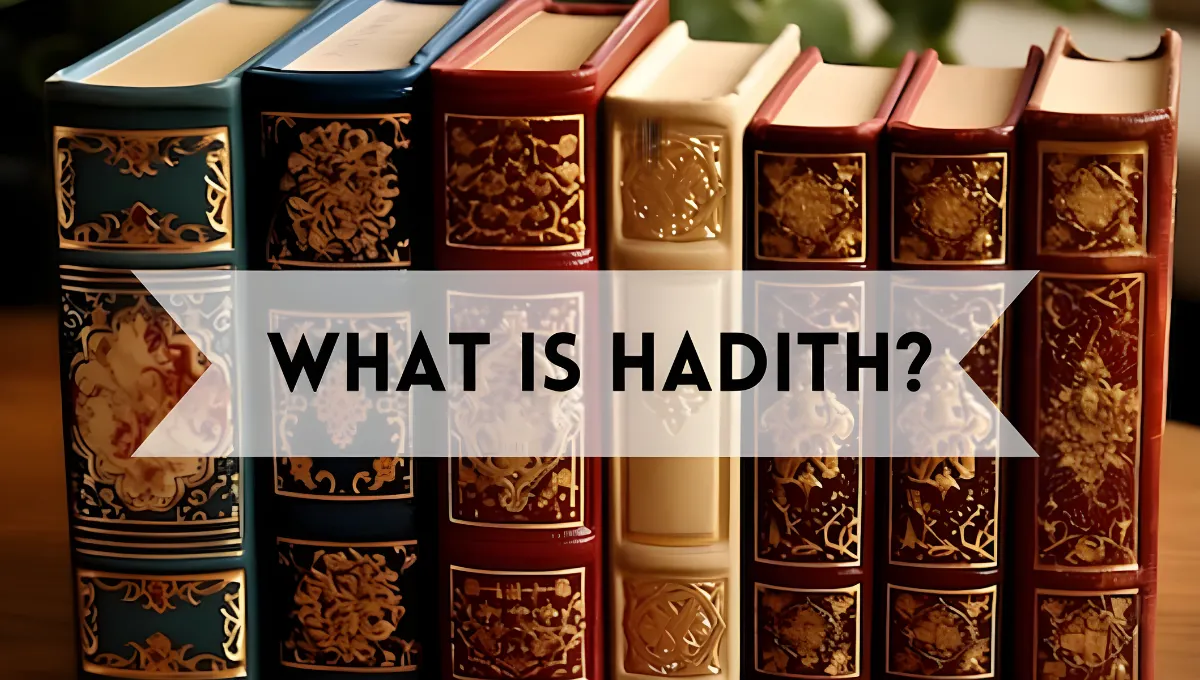
Hadith meaning
“Hadith” is an Arabic term that means “statement” or “conversation.” The word “Hadith” can also mean “new.” Technically, it refers to the recorded sayings, actions, or silent approvals of Prophet Muhammad (peace be upon him). Essentially, a Sunnah is a conversation that can be short or detailed.
“Taqrir” means that if someone did something before Prophet Muhammad (peace be upon him) and didn’t object, it’s seen as if he silently approved of that action. For Muslims, hadiths are essential to understand the steps and teachings of Prophet Muhammad. They rank just below the Qur’an in importance and provide insight into law, rituals, and beliefs.
If you want to learn Hadith, Join Online Hadith Learning Course at Qari.live.
Online Hadith Course
History of Hadith
- A lifetime of Prophet Muhammad (570-632 CE):
During his life, those around him observed and remembered the Prophet’s sayings and actions. His companions would sometimes relay his sayings or recount events involving him, even during his lifetime.


- Period of the Rightly-Guided Caliphs (632-661 CE):
After Muhammad’s (PBUH), the need for recalling his statements and actions grew, especially when resolving disputes or clarifying religious matters. The Muslim community’s first four caliphs (leaders), known as the Rightly-Guided Caliphs, were often consulted due to their close association with the Prophet.
- Oral Tradition:
For several decades, ahadees were primarily transmitted orally. While some individuals began recording hadiths in writing, oral transmission remained dominant. - First Collections:
As Islam spread and evolved, the necessity for authenticated sayings of the Prophet became more pressing. By the mid-8th century, efforts to systematically collect and document ahadees intensified. Scholars traveled extensively, seeking chains of transmissions and authenticating the reliability of narrators.


Classification and Authenticity:
Scholars developed rigorous criteria to determine the authenticity of hadiths. They categorized ahadees into:
Sahih (Authentic)
Da’if (Weak)
Hasan (Good)
Mawdu’ (Fabricated)
This process involved scrutinizing the content (primary) and the narrators (isnad) chain.
Significant Collections & Hadith Books:
Several important hadees collections were compiled between the 8th and 10th centuries. The most renowned among Sunni Muslims are the “Six books”:
1. Sahih al-Bukhari by Muhammad al-Bukhari
2. Sahih Muslim by Muslim ibn al-Hajjaj
3. Sunan Abu Dawood by Abu Dawood
4. Jami’ al-Tirmidhi by Al-Tirmidhi
5. Sunan an-Nasa’i by Al-Nasa’i
6. Sunan ibn Majah by Ibn Majah
For Shia Muslims, primary sources include “Al-Kafi” by Al-Kulayni and others.


- Later Developments:
By the medieval period, hadees criticism became a sophisticated discipline, with numerous works focusing on the biographies of narrators, explanations of individual ahadees, and detailed classifications.
- Modern Times:
In contemporary times, the role and authenticity of ahadees remain topics of discussion. Modernist and reformist thinkers sometimes challenge traditional understandings or the application of certain ahadees. Technological advancements, including databases and software, are now used to analyze hadees chains and content.
Importance of Hadith in islam
- Source of Legislation: While the Qur’an provides the primary framework for Islamic beliefs and practices, it doesn’t delve into the specifics of every matter. The Sunnah fills in these gaps by offering detailed guidance on various issues, ranging from daily rituals and etiquettes to comprehensive legal rulings.
- Clarification and Elaboration of the Qur’an: In several instances, the Qur’an might allude to a subject briefly, and the Hadees will provide a more comprehensive explanation. For example, while the Qur’an instructs believers to perform the ritual prayer (Salah), it is the Hadith that offers specifics on how the prayer is to be performed.
- Historical Record: The Hadees provides a glimpse into the life of the Prophet Muhammad (peace be upon him) and the early Muslim community. This historical context is invaluable for understanding the circumstances in which certain revelations were made or specific actions were taken.
- Moral and Ethical Guidance: ahadees provide moral teachings and principles that guide a Muslim’s character and interaction with others. They offer insights into the virtues upheld by the Prophet Muhammad (peace be upon him) and serve as a model for Muslims to emulate.
- Foundation of Jurisprudence (Fiqh): Islamic scholars rely heavily on the Hadees when deriving legal rulings. The science of Islamic jurisprudence (Fiqh) has developed intricate methodologies to evaluate the authenticity and relevance of various Islamic Tradition.
- Spiritual Significance: Many ahadees delve into matters of the heart, guiding and purifying one’s intentions, relying on God, and cultivating inner virtues. For many Muslims, these Hadiths serve as a source of spiritual inspiration and reflection.
- Preservation of the Religion: Hadees experts ensured Islam’s teachings were preserved by carefully checking their sources and content. They made sure only genuine teachings were shared over time.
Send Blessing On Prophet Muhammad (PBUH)
FAQ’s(Frequently Ask Questions)
What is Hadith in islam?
A Sunnah comprises the teachings and deeds of Prophet Muhammad, offering guidance to Muslims in comprehending and adhering to their religion.
How are Hadiths sorted?
Sunnah’s are sorted into groups like ‘authentic’ and ‘weak’, based on how reliably they were passed down.
Why are Hadiths important?
They are important because they explain and add to what’s in the Quran, showing how to follow Islam.
Do Hadiths oppose the Quran?
No, authentic Sunnah’s don’t go against the Quran. They help explain it. Any conflicting Hadith is checked for accuracy.
How do Hadiths affect Islamic law?
Sunnah’s are used to make Islamic laws, especially for things not clearly stated in the Quran, guiding Muslim life.





